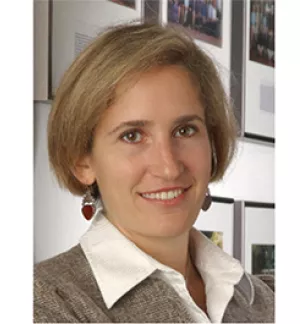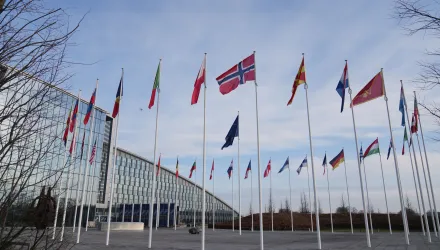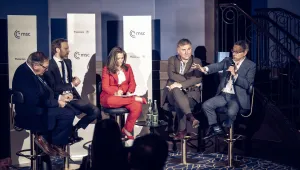For the past weeks and months I have been expounding on Pakistan's democracy, or lack thereof.
I can rattle off the list of events that have taken place since March 2007, many instigated by President Musharraf, that show plainly how undemocratic and perhaps even corrupt is Pakistan's system. I can recite how on election day there was neither an independent judiciary nor Election Commission. How, security challenges including most notably the assassination of Benazir Bhutto on December 27, and a state of emergency for six weeks through November and into December, ensured that the political campaigning could not take place effectively. Until February 18, this is what I would have told you had you asked about Pakistan's democracy.
Today however, I carry another more ambiguous, and I think positive, message. And, it is one taught me not by the politicians or the elites but by the people of Pakistan.
The people I met, men and women, young and old, wealthy and poor, care deeply about their country and their freedom to vote. We worry in the United States that our youth are disenfranchised; I saw at least as many young people voting, presiding as election monitors, or present as political agents, as I did the older generation.
Given the cost of the National Identity Card that is required in most places to vote we would be wise to question whether the poor had an opportunity to be heard. But, the turnout in the underprivileged areas of Multan (a town in southern Punjab that I visited) was higher than in wealthy areas. And, the rural areas generally have higher participation than the urban. Perhaps they were less afraid, or maybe they had more reason to try to change the system. While in many areas the poverty stricken were bussed in by the political parties who might well have paid these folk to vote appropriately - we should not be naïve about this - nevertheless they did have the opportunity to vote; I think on balance a positive.
Are women disenfranchised in Pakistan? Absolutely. I can recite anecdotes, particularly from the Tribal Areas, about politicians who agree not to count the women's votes. Or, polling stations that were listed but never set up for women. But, on the other hand, in Pakistan there are women's only polling stations to ensure that this group is included taking into account cultural sensitivities. Those I saw, admittedly a self-selected group, did not feel disenfranchised.
The Pakistani election process is certainly far from perfect. All the problems before election day are serious ones: the electoral rolls were old and inaccurate, there were ballots stolen, ghost polling stations, and political pressure brought to bear to name but a few. But, I came away with a more profound belief in the man and woman on the street who is still engaged, despite these problems, who still wants to see change.
There is a message for us here. The United States has long supported democracy in Pakistan, but alongside this message has been a contrary one - support for President Musharraf specifically. And this has held true throughout the past year's unrest as the people increasingly made clear their desire to have him move aside: a message that rang out on election day. The time has come (in fact came a while back) when our actions should finally align with the values that America holds dear.
My presence, both as an election observer and an American, was enthusiastically supported by all those I met. It is clear to me that the anti-Americanism that we see in polls is superficial in many cases, a fact supported by the significant upsurge in support after our 2005 earthquake response in Pakistan. It is time for us to harness this.
We need to help build institutions in Pakistan and assist with their education and health systems. We need to put pressure on the government to reengage with its people and particularly bring those now disenfranchised, in the Tribal Areas and Baluchistan most notably, back into the fold. This does not mean stopping support of the military -- it will continue to play a central role in Pakistan for a while to come -- but, perhaps we should recognize that what for us is the War on Terror, is for them domestic upheaval.
Day to day I sit in my ivory tower at Harvard and elucidate the problems of Pakistan and the correct policy that the United States should employ. I analyze the pros and cons and clinically, I believe, establish likely scenarios and their respective impacts. My job today is to merge the two messages I know about Pakistan: its politics and the lessons learned from the Pakistanis themselves.
Dormandy, Xenia. “Heart vs. Mind and Monitoring Elections in Pakistan.” February 27, 2008
The full text of this publication is available in the link below.





